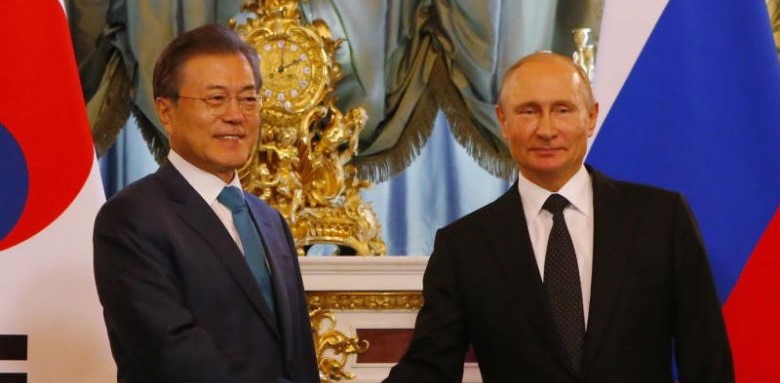Russia may start trade talks with Seoul
November 27, 2018 | Expert Insights

Negotiations on the implementation of a free trade zone agreement between Moscow and Seoul may start in 2019, according to South Korea’s ambassador in Moscow, Woo Yoon Keun.
Background
Modern relations between South Korea and Russia began on September 30, 1990.
Immediately following Japan's 1910-1945 colonial rule of Korea, the Cold War between the Soviet Union and the United States created the division of Korea into North and South states. Thereafter, since the two sides were separated by North Korea and opposing ideologies, there was little contact until the fall of the Soviet Union.
On November 20, 1992, Russia and South Korea signed a protocol providing for regular visits of defence officials and naval vessels between the two countries.
On July 23, 1997, during a visit of the then Russian Foreign Minister Yevgeni Primakov to Seoul, a ‘hot line’ agreement was signed providing for the establishment of a special communications link between the official residences of the Russian and South Korean presidents.
Russian president Vladimir Putin visited Seoul in February 2001, while South Korean president Roh Muhyeon visited Moscow in September 2004. South Korea and Russia are participants in the Six-party talks on North Korea's nuclear proliferation issue.
From 21 to 23 June 2018, South Korea president Moon Jae-in paid a state visit to Russia. On June 21, he addressed the State Duma, the lower house of the Russian Federal Assembly. He became the first South Korean leader to speak in the Russian Parliament. On June 22, Russian President Vladimir Putin held talks with Moon Jae-in in Moscow. Leaders signed a document for the foundation of the free trade area.
Analysis
According to South Korea’s ambassador in Moscow, Woo Yoon Keun, Russia and South Korea have begun negotiating on the implementation of a free trade zone agreement in 2019, the first of its kind between the former Cold War adversaries.
Ambassador Woo said that “the documents have already been submitted to the parliament [of the Republic of Korea]... We hope that next year we will start intensive negotiations.”
An agreement on setting up a free trade zone between the countries was inked in June during the visit of South Korean President Moon Jae-in to Moscow.
Seoul is seeking to significantly ramp up business with Moscow. It wants to speed up the building of the so-called “nine bridges,” meaning gas, railways, the Northern Sea Route, shipbuilding, job creation, fishing, and other types of cooperation.
Last year, trade between Seoul and Moscow grew 40 per cent to $19 billion. The countries have joint projects in Russia’s Far East and economic ties can grow if the countries reach a breakthrough in gas deliveries.
As part of a plan to expand bilateral economic cooperation, Russia and South Korea aim to launch a regular ferry line, connecting their major port cities.
Since the 1990s there has been greater trade and cooperation between the two nations. The total trade volume between South Korea and Russia in 2003 was 4.2 billion US dollars.
South Korea and Russia are working together on the construction of a bilateral industrial complex in the Nakhodka Free Economic Area in Russia's Far East and gas-fields development in Irkutsk. The two sides also agreed to cooperate on reconnecting a planned inter-Korean railroad with the Trans-Siberian Railroad. Russia has expressed interest in becoming a conduit for South Korean exports to Europe, which now go by ship, by linking the Korean railroad to the TSR.
Russia reportedly offered to repay its $1.7 billion debt to South Korea through joint investments in North Korea, such as the railroad project.
Assessment
Our assessment is that with the thaw in the Korean peninsula, trade-related issues in Eastern Asia are taking the centre stage. Despite their adversarial past, Russia and South Korea now have the potential for trade that can be mutually beneficial, especially in natural resources and technology. We believe that Moscow and Seoul will be able to converge on a comprehensive free trade agreement in the near future.








Comments